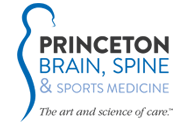Meningioma
Meningioma Tumors
Causes, Diagnosis & Treatment
A brain tumor diagnosis can feel overwhelming, but the surgeons at Princeton Brain, Spine & Sports Medicine are recognized for their skilled, patient-centered care. From diagnosis through treatment, our clinicians take ample time to educate and support patients while offering advanced treatment options that minimize risk and produce best-case outcomes.
What is a Meningioma?
Formed on the meninges, the membrane covering the brain and spine, most meningiomas are benign. In fact, this type of tumor is the most common benign brain tumor in adults (though there are occasional malignancies). A small, non-symptomatic meningioma may be treated with observation over time. In the case of more aggressive, fast-growing tumors, surgery is usually required.
Meningioma Treatment Options
A majority of meningiomas can be removed surgically and often do not return. In some cases, radiation may be considered if a small piece of the tumor remains after surgery—or if the patient is not healthy enough for surgery. The most common methods of reduction or removal include:
- Radiosurgery. Small meningiomas may be treated with a Gamma Knife, which directs targeted radiation at the tumor. The Gamma Knife disrupts the meningioma’s DNA, interfering with its ability to survive.
- Craniotomy. A craniotomy is performed using general anesthesia and is often the preferred way to remove a meningioma. After making a temporary window in the skull, your PBSSM neurosurgeon removes the tumor and a portion of healthy surrounding tissue; then, he carefully closes the skull and reattaches displaced tissue.
- In some instances, PBSSM neurosurgeons can access and remove a meningioma through the nose using an endoscopic/endonasal tube, computer imaging and precision instruments. This minimally invasive approach may be used to remove tumors growing in the ventricular chambers.
Meningioma Experts at Princeton Brain, Spine & Sports Medicine
Princeton Brain, Spine & Sports Medicine specializes in the diagnosis and treatment of benign and malignant brain tumors like meningioma and acoustic neuroma. With state-of-the-art offices conveniently located throughout PA and NJ, our neurosurgical practice is an in-network provider for many insurance plans. To request an appointment or schedule a new patient consultation, call 215.741.3141 in PA or 609.921.9001 in NJ.
Request an Appointment
Submit an appointment request on our patient portal or contact our New Jersey and Pennsylvania campuses to speak with a patient advocate.
